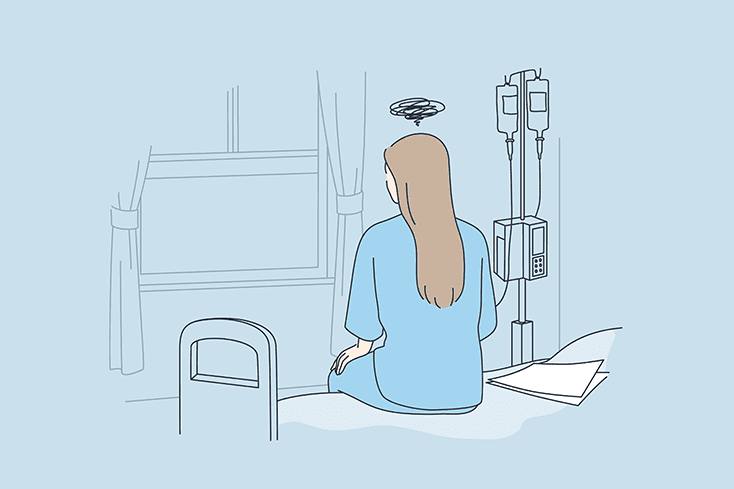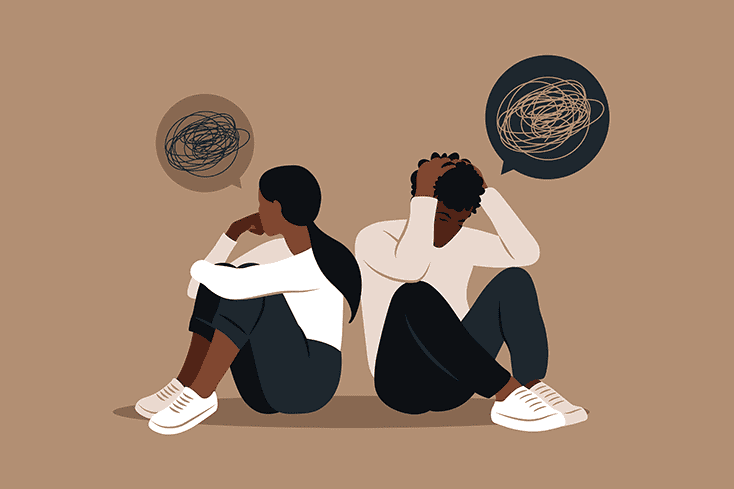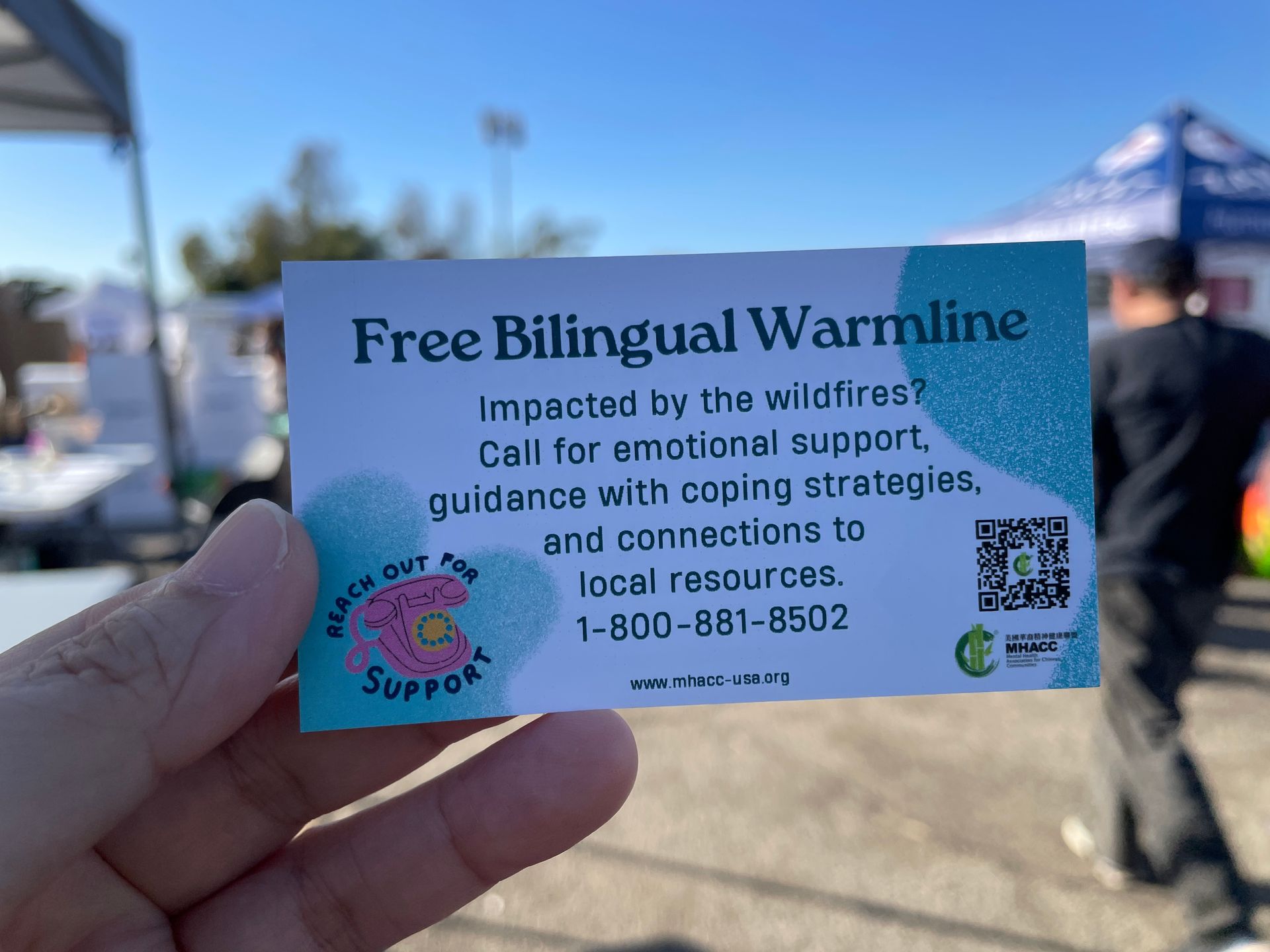學習如何在患有雙相情感障礙的情況下維持就業 | Learning How to Maintain Employment with Bipolar Disorder
MHACC 雙語部落格 Bilingual Blog
Scroll down for the English Version ⬇️
作者:Laura Germak Ksenak
2021年10月19日
我再次拿出過時的履歷,開始撰寫求職信。帶著謹慎的樂觀態度,我向幾家在求職網站上列出的公司投遞申請。在重新投入求職的同時,我也非常清楚我的情緒可能會再次讓我無法長期就業。然而,這一次,我決定把那些負面想法藏進公事包裡,勇敢嘗試。
成年以來,躁期的非理性與衝動常讓我難以穩定工作。我常形容躁期的感覺就像是一口氣喝下二十罐能量飲料,並持續承受其副作用好幾天、幾週,甚至幾個月。你可以想像,這對工作能力的影響有多大。
因為躁期,我不停更換工作——從人類服務業轉到廣告,再回到人類服務領域,接著攻讀特殊教育碩士,開始教書,最後又回到人類服務工作——始終無法真正建立一份事業。
我的情緒與症狀常讓我無法清晰思考與理性行為,破壞了我在職場上的人際關係。然而,認識自己的診斷並學習應對技巧,是我學會如何保住工作的關鍵。
在我被診斷之前
當我處於躁期時,根本不知道自己有病,因此幾乎不可能穩定工作。我的症狀包括:
• 自以為是
• 抗拒上級指示
• 腦中混亂,導致專案做到一半就放棄
• 做出糟糕決策
• 隱瞞未完成的工作
• 在需要幫助時不願求助
我將自己的缺失歸咎於別人,因為我總認為自己是對的。
我的主管試圖控制我,但我拒絕配合。最終,他們只能讓我走人。「讓我走」聽起來好像溫柔又友善——彷彿我的主管像放飛小鳥一樣放我自由。但實際上,「讓我走」的語氣通常是這樣的:
• 「我們不會續簽合約。」
• 「你可以做到這週結束。」
• 「我要讓你回原本的職位(也就是降職)。這裡有張衛生紙。」
每次,我的身體都會有反應:淚水潰堤、下顎緊繃到只能吃蘋果泥和奶昔。
在因情緒失控而失去三份工作後,我決定暫時休息。住院一週後,我帶著一份「雙相情感障礙第一型」的診斷離開醫院。
診斷之後
我在精神病房接受治療、服用藥物與心理治療,這些讓我的生活重新燃起正面與平衡的力量。幾個月後,我終於覺得穩定到可以再次工作,於是選擇了一份彈性大、壓力小的工作。
我的主管是一位非常支持我的人,因為她自己也有心理健康的相關經驗。她當時正在攻讀社工師執照。每當我因躁期或憂鬱發作需要請假時,她都會為我發聲。她也堅持讓我不必參加全國性的年度「全員出動」會議,讓我能留在家中與家人和專業支持團隊一起度過。她讓我明白:自我照顧是正當且對我健康非常重要的事。
在這份我能勝任的工作待了兩年後,雙相情感障礙再次控制了我的大腦,讓我從躁期跌入憂鬱期。我知道我需要離職,但至少這一次,是我自己做的決定。我選擇不再做一份工作,而是開始「修復自己」的工作。
全職投入於理解並管理我的心理疾病,需要我改變習慣。我開始健康飲食、運動、重視自我照顧、按時服藥,並嘗試漸進式肌肉放鬆法來穩定自己。我也開始寫日記,記錄感恩的事,並透過寫作反思。
這個過程有高低起伏。有時冥想與肌肉放鬆能讓我平靜,有時則無效。藥物有時能發揮效果——直到它們失效。有時治療能帶來新觀點,有時我則感覺卡住。儘管充滿挑戰,這些工具讓我重新找回多年未曾體驗過的掌控感、自信與希望。
我現在的狀況
最近,我受邀與一個我曾在躁期前申請的職位的主管面談。儘管我內心情緒翻湧,我還是順利完成了面試,並得到了這份工作。在離開職場兩年多後,我甚至不太敢稱自己為「上班族」。
我在短暫復原期中建立的正面自我對話,又迅速轉為負面。我差點說服自己放棄,但我的治療師幫我意識到:回到職場的焦慮觸發了我的憤怒與躁動。透過運用一些應對技巧,如尋求專業協助、自我照顧、練習感恩與活在當下,我相信焦慮終將消散,躁動也會逐漸平息。
儘管我仍然懷疑自己,我決定勇敢一試。我每天努力讓自己放鬆,釋放負面情緒,盡責完成工作,並在需要時尋求職場內外的幫助。請祝我好運。
Laura Germak Ksenak 於 2014 年被診斷為雙相情感障礙第一型,自此便開始書寫自己的故事。她目前在一份兼職工作中找到平衡,也有更多時間在新澤西州的 The Writers Circle 指導下磨練寫作技藝。
Written by: Laura Germak Ksenak
Original Source Here: https://www.nami.org/bipolar-and-related-disorders/learning-how-to-maintain-employment-with-bipolar-disorder/
October 19, 2021
Once again, I dusted off my outdated resume and began to write cover letters. Feeling cautiously optimistic, I applied to several companies listed on an employment site. As I returned to the job hunt, I was acutely aware that my moods could stop me from staying employed (again). However, this time, I decided to conceal that negativity in my briefcase and go for it.
Throughout my adulthood, the irrationality and impulsiveness of mania has severely limited my ability to stay employed. I often describe mania as a similar feeling to chugging 20 energy drinks and weathering the side effects for days, weeks or even months. You can imagine how this would affect a person’s ability to work.
Due to mania, I’ve jumped from job to job — human services to advertising, back to human services, then pursued my Master’s in Special Education that led to teaching, then lastly back to human services — never actually building a career.
My emotions and symptoms often cloud my thinking and behavior, ruining my relationships at work. However, identifying my diagnosis and learning coping skills has been key to learning how to keep a job.
Before My Diagnosis
It was nearly impossible to hold a job when I was manic because I had no idea how sick I was. My symptoms included:
- Self-righteousness
- Refuting directives
- My scattered brain leaving projects halfway finished
- Poor decision-making
- Hiding failed attempts to complete a task
- Neglecting to ask for help when I needed it
I blamed everyone else for my deficiencies because I was always right.
My supervisors tried to rein me in, but I refused. Inevitably, they would have to let me go. Letting someone go sounds so gentle and kind — as if my bosses sent me off like a baby bird learning to fly. In reality, letting me go sounded something like:
- “We’re not going to renew your contract.”
- “You can finish out the week.”
- “I’m going to give you your old position back (aka demote you). Here’s a tissue.”
Each time, my body reacted with a combination of tears and my jaw locking up so painfully I would only be able to eat applesauce and milk shakes.
After losing three jobs to my unpredictable moods, I took some time off to regroup. I spent a week in the hospital and left with a parting gift — a diagnosis of Bipolar I Disorder.
After My Diagnosis
Identifying my mental illness while in the psych ward, as well as receiving medications and therapies, revived both positivity and balance in my life. It took several months to feel stable enough to work again, but then I took a flexible, low-stress job.
My supervisor was an excellent support system who understood mental illness because of personal experience. She was also studying to be a licensed social worker. She advocated for me on several occasions when I had to miss work due to an episode of mania or depression. She also firmly mandated that I skip the annual “all-hands-on-deck” conferences that took place around the country in order to stay home with my support team of family and professionals. I learned from her that my self-care was valid and essential to my well-being.
After two years in this manageable position, bipolar disorder took control of my brain again, dragging me from mania to depression. I knew I needed to stop working, but at least this time leaving was my decision. Instead of working a job, I chose to work on myself.
“Doing the work,” full-time to understand and manage my mental illness required an effort to change my habits. I began eating well, exercising, prioritizing self-care, following a medication regimen and trying progressive muscle relaxation to ground myself. I also began journaling about the things I was grateful for and even writing essays to reflect.
This process had its ups and downs. Sometimes meditation and muscle relaxation calmed me down, sometimes not. My medications would work for a while — until they didn’t. Sometimes, therapy gave me perspective and sometimes I felt stuck. Despite the challenges, after learning these tools, I felt a spark of control, confidence and hope that I hadn’t felt in years.
Where I Am Now
Recently, I was invited to meet with supervisors of a position I had applied for before my latest episode of mania. I aced the interview despite my internal whirlpool of emotions and landed the job. Having been out of work for more than two years, I didn’t feel ready to call myself an employee.
The positive self-talk I developed during my brief recovery quickly turned negative again. I almost talked myself out of trying, but then my therapist helped me realize that my anxiety about returning to work triggered my anger and agitation. By employing some coping skills, like getting professional help, self-care, practicing gratitude and finding presence, I believe my anxiety will pass and, in turn, my manic behaviors will settle down.
Despite my doubts, I am going for it. I work every day to relax, let go of negativity, diligently fill the responsibilities of my post and, when needed, seek help on and off the job. Wish me luck.
Laura Germak Ksenak was diagnosed with bipolar disorder 1 in 2014 and has been writing her story ever since. She is enjoying her new part-time job which affords her plenty of time to hone her craft under the tutelage of The Writers Circle in NJ.
Sign up for our Newsletter
訂閱每月簡訊獲得最新資訊
Contact Us












